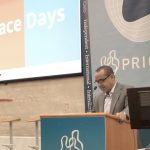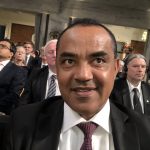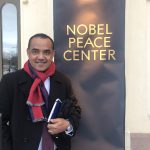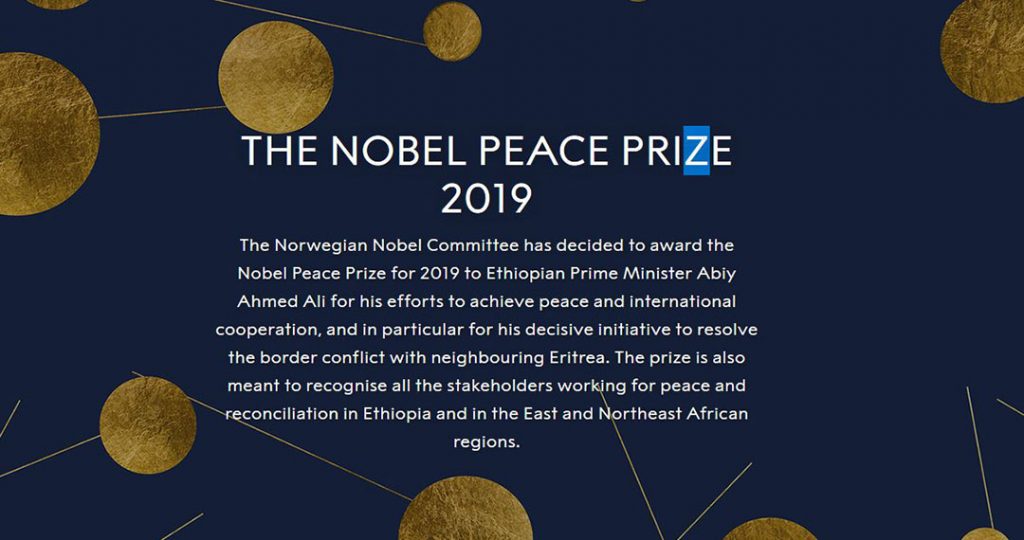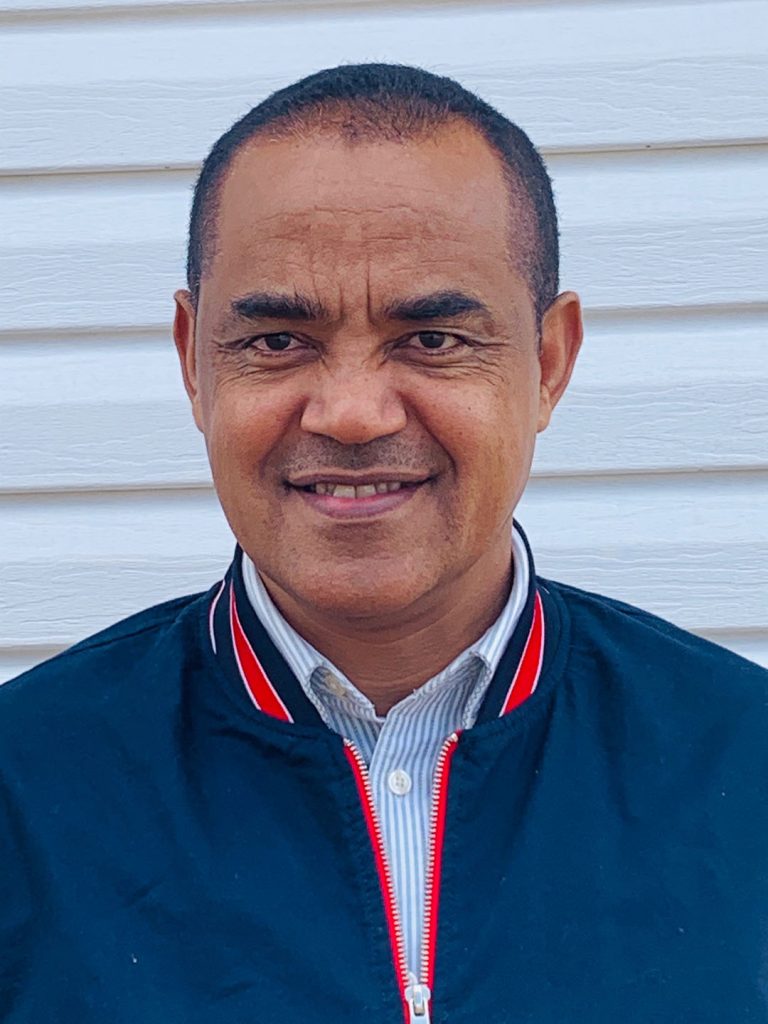Building peace from below
Peace can be built from above by people who have power, but it can also be built from below.
This was one of the key messages in a lecture given by Dr. Henrik Syse, a research professor from the Peace Research Institute in Oslo who teaches peace and conflict studies at Bjørknes University College.
Syse spoke to students in Dr. Zenebe Beyene’s peace journalism class remotely via Zoom this week about “reflections on the Nobel Peace Prize and generating a conversation about peace.”
The popular public speaker served a full six-year term from 2015 to 2020 as a member of the Norwegian Nobel Committee, which awards the Nobel Peace Prize. He served as its vice chair from 2017-2020.
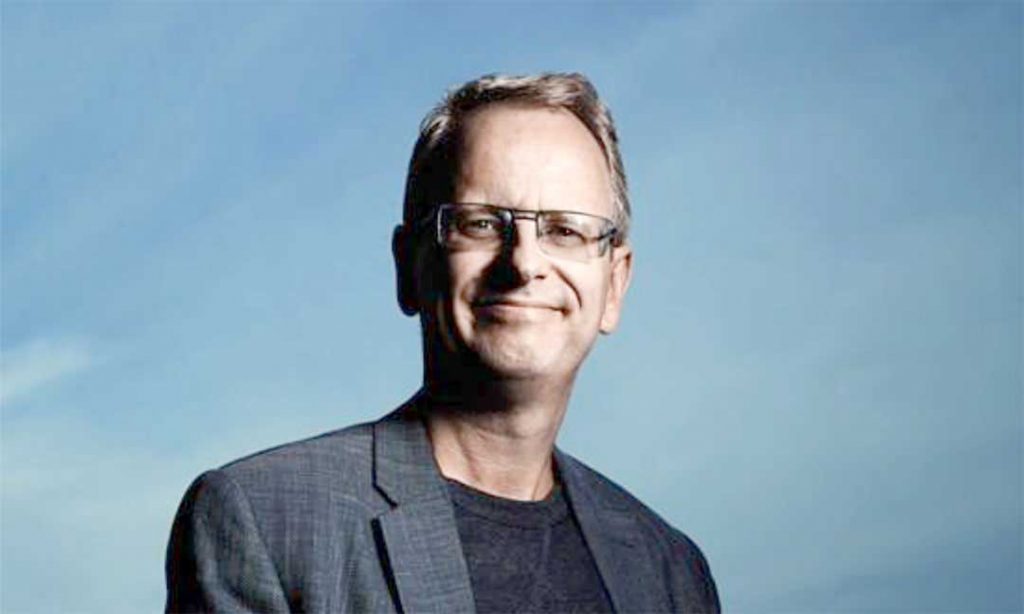
We can all play a role in fighting for peace, Syse said, even if we don’t hold a leadership position.
“There are so many ways: personal, communal, diplomatic, political, spiritual,” he said. “… We must be able to talk about peace…We must find arenas… If we leave it to others to talk about peace, we won’t make any headway in our lives or communities.”
Can we agree on a concept of peace as a goal worth pursuing in itself across cultural boundaries, Syse asked. He said there are different conceptions of peace.
- Negative peace: The absence of physical conflict.
- Positive peace: A life of possibilities and fulfillment, enjoyed in confidence and predictability (within the human condition).
- Inner peace: The tranquility of the mind.
- Fraternal peace: Harmony between people who mean each other well.
- Environmental peace: Harmony with the needs of the earth and its creatures.
- Divine or philosophical peace: Harmony with God or the Cosmos.
“We need meeting points across differences,” he said.
Syse also discussed the history of the Nobel Peace Prize that came from the will of Swedish industrialist Alfred Nobel, who lived from 1833-1896.
“He wanted the money after his death to be used for the good of mankind – to award people who had done something great for the world,” Syse said.
The Nobel Peace Prize is awarded in chemistry, medicine, literature, peace and economics.
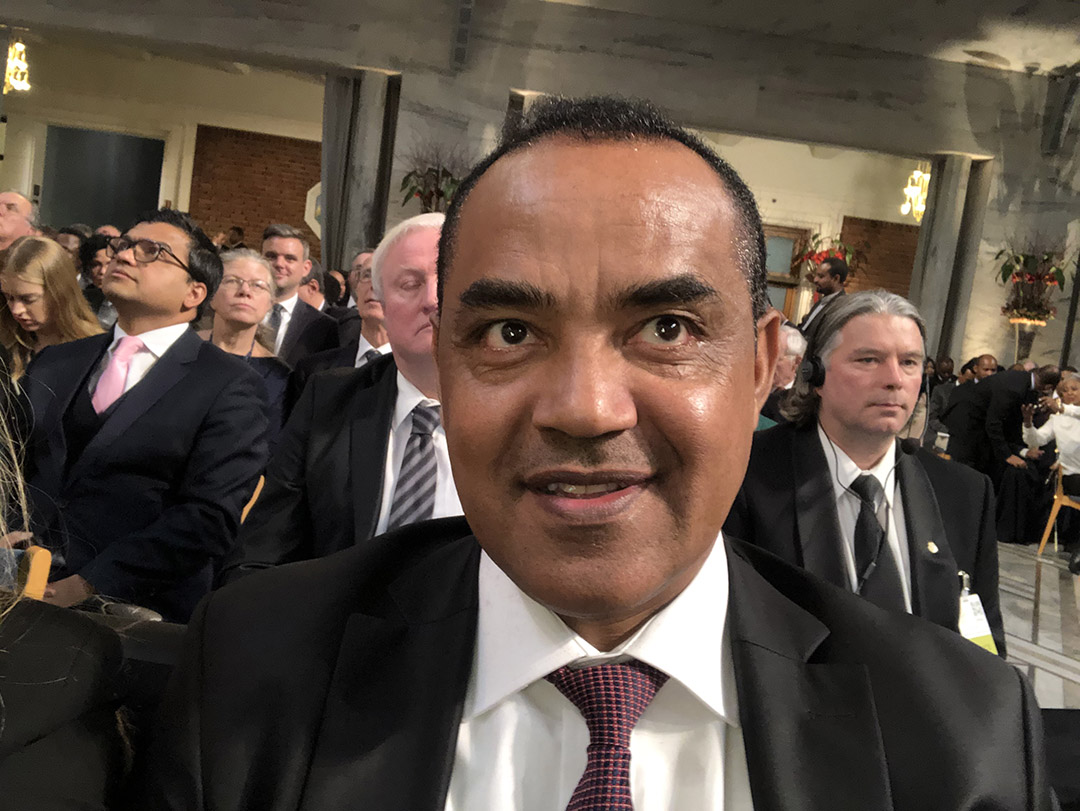
Coordinator of International Programs
“Individuals who don’t hold a lot of power…They can build peace from the bottom up in their society,” Syse said. “… I think we should all think about how we can contribute to peace, whether we win the Nobel Peace Prize or not.”
Syse said one way of being more peaceful and agreeing on a definition of peace is by using common sense principles like the Golden Rule, known in many religions and cultures. Treat others the way you would have them treat you.
He said journalism can be an instrument of peace.
“Disagreement can be very constructive,” he said. “… Journalism plays a huge role there. You can uncover truth in a way that uncovers peace and speaks truth to power.”
Syse, who teaches regularly at the Norwegian Defense University College, the University of Oslo, and other institutions of higher learning, is chief editor (with James Cook) of the Journal of Military Ethics. From 2005 to 2007, he was head of corporate governance for Norges Bank Investment Management, which manages Europe’s largest sovereign wealth fund, and he continued, until 2009, as an advisor and consultant on social issues for NBIM.
He was also a member of the Norwegian Press Complaints Commission from 2002 to 2016, and has been a member of the Norwegian Academy of Language and Literature since 2010. He was nominated as a Young Global Leader by the World Economic Forum in Davos in 2007.
Syse has written and edited approximately 20 books and many articles and essays. His publications span the fields of philosophy, politics, business, religion and ethics. He is often used as a commentator on social and ethical issues by the media.
He holds a Master of Arts degree in political philosophy from Boston College and a Dr.Art. (Ph.D.) degree in moral philosophy from the University of Oslo. He is also a Sunday School teacher – and a specialist on The Beatles.
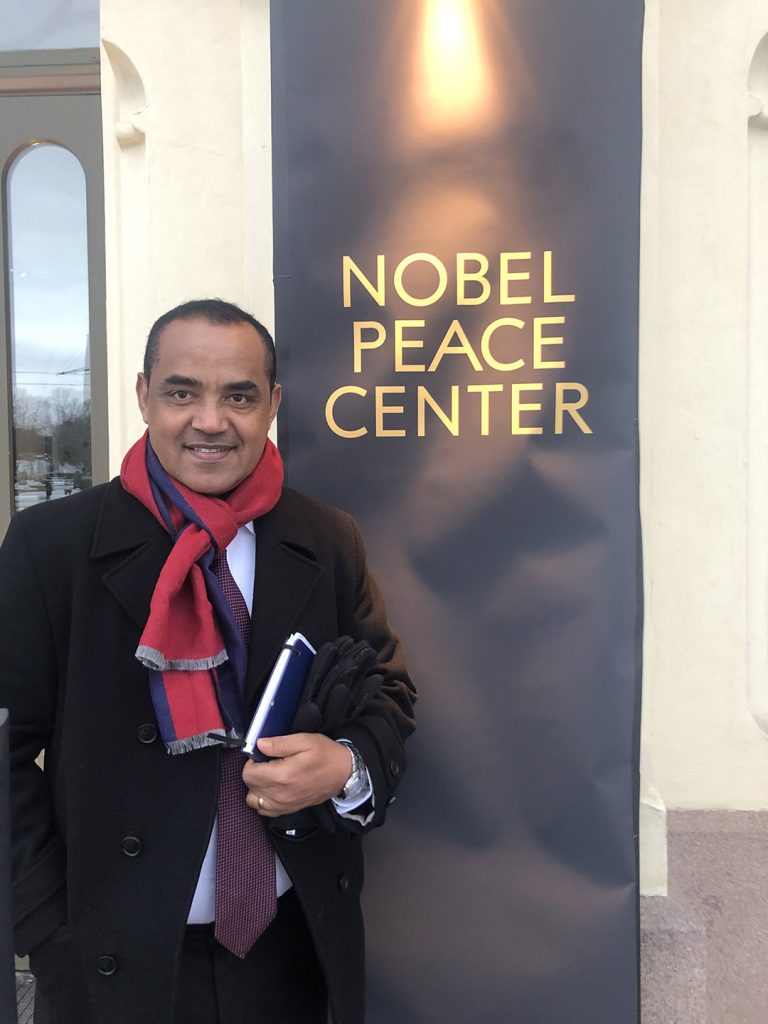
Beyene, an assistant professor and coordinator of international programs, said conversations about peace are important.
“I think one important takeaway point for all is, although there are different conceptions of peace, peace is something that is worth fighting for because it is the foundation for everything.
“This is one of the reasons why we need to work hard. It’s not only aspiring or hoping for peace; we need to work for it because we cannot have peace unless we contribute our own share.”
Kelby Zendejas, a student in Beyene’s class, said it was an honor to listen to professor Syse’s presentation on peace and the Nobel Peace Prize.
“I remember writing down several quotes from his lecture that resonated with me as an aspiring journalist,” she said. “My ultimate takeaway from his lecture was definitely that peace can be built from below. It’s our duty as journalists to seek out the truth and uncover the truth by telling good stories.
“One other thing he said – one that I believe is the most important skill for a journalist to acquire – is the ability to listen. To be able to listen and tell unbiased stories with hope that peace journalism can contribute to world peace as a whole.”
